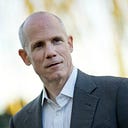Member-only story
Would We Be Smart to Ask These 3 Questions About the Housing Market?
The U.S. housing market has fundamentally changed. Should we change how we think about “the biggest asset most families will ever buy”…?
Related and recent articles
• What Are 4 Things Smart Homebuyers Do If Their Mortgage Rate Is Over 5%?
• (Part 1) The 5 Most Important U.S. Economic Events Over the Last 50 Years
• Did This Happen by Accident to 89% of America’s Stock Market Wealth?
• Pressing Where It Hurts: How to Win Fights That Matter
• Has U.S. Healthcare Really Become a Mob Protection Racket?
• My Top 1% Friend Was Floored by the Cost of His Family’s Health Insurance
(Subscribe to receive email notifications when I post new articles.)
There are several basic assumptions that homebuyers over the last few decades have taken as gospel truths, including:
- It’s always either a buyer’s market or a seller’s market when it comes to housing in the U.S. It’s rarely, if ever, “neither.” What if that’s changing, and it has — potentially for the long-term — become a lousy market for both buyers AND sellers? What if we no longer really have a housing MARKET the way that we traditionally understand markets
- Homeowners have generally bought fully into the idea that buying a home is (1) not only a good investment but (2)always a good investment over the long term. What if that is no longer true? Or at least, what if it won’t be true again (if it ever was) for at least 40 or 50 years?
- What if it’s now incorrect to think about the house you bought as a financial asset? What if your house no longer meets the most basic of tests when it comes to actually being a financial asset?
